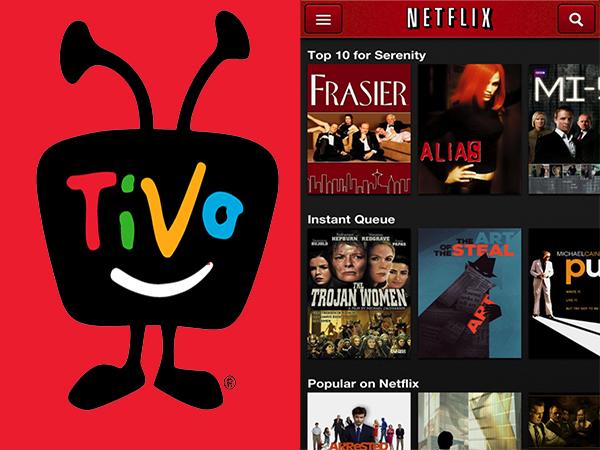The sun is shining, the birds are singing, and summer is coming. While some students prepare for lavish European and tropical vacations, others have a more sedentary break in mind. Couches will double as friends, and books will lie destitute under beds and dejectedly in corners as some of us set out on a TV bingeing adventure.
With the expansion of Netflix and TiVo, as well as Blockbuster’s decline in popularity, TV shows are readily available at the touch of a button. But why watch just one episode? Free time stretches out like a vast, empty tundra before students, and bingeing on their favorite program, or, more often, programs, seems the best way to fill that void.
As any multi-tasking introvert will know, TV can serve as a great mental break while cranking out homework on a Sunday night. When faced with the choice – being sequestered in your room and staring at worksheets and cramped notes for hours while a cozy bed beckons at your elbow, or reclining on the couch with your favorite show to keep you wide-awake while you type up an essay – it’s not hard to figure out what most people would choose. But when the year is up and homework gone, how do you break the routine, or justify whiling away the day plastered to the same spot?
Even as I write this, the television hums in the background, a constant whisper urging me to look up, to break my focus. So I began to wonder, why is TV such an alluring prospect? Watching strangers essentially play dress-up and pretend to be characters from childhood nightmares, aspirations, and books seems ridiculous, yet we keep coming back. Shows serve as conversation starters and icebreakers, and who hasn’t seen at least one friendship formed over a shared love of Harry Potter? TV binds our society together, depicting the latest fad or song in an episode, until we no longer watch just to see what all the hype is about, but instead because we feel we know the characters, that we are a part of the story.
Therein lie the origins of the term “binge-watching”: the continuous viewing of TV shows in succession, sometimes so intensely as to verge on the unhealthy. If I had a penny for every “I watched all six seasons in….” phrase I heard, I would be able to shower an entire kindergarten with bubblegum for a year. Of course, binge-watching isn’t merely an observed phenomena; I too indulge in living room liaisons between the screen and myself, more often than I care to admit. Though fun and relaxing at the time, a nagging worry persists: what is this doing to me?
And I might be right to be cautious. CNN Health published an article highlighting the dangers of a sedentary lifestyle headlined “TV watching raises risk of health problems, dying young”c, in June of 2011.
Suffice to say, the article explained that excessive time spent in front of the TV can alter eating patterns, and combined with a lack of exercise, can lead to a higher risk for diabetes.
I agree that few people finish off eight seasons in one sitting and feel like a basket of flowers, but is binge-watching really killing teenagers slowly? Maybe yes, maybe no. Just because I like Law and Order marathons doesn’t mean I can’t also chomp down on some broccoli while I’m at it. I have noticed, however, a significant impact on my mental health.
First and foremost, focus. The pages of a book no longer leap off the page, as in the days before I found the intrigues of Netflix, but instead sulk in their binding like children forced to stay inside on a sunny day. Novels assigned for class loom in my backpack, daring me to merely skim their educational pages. My brain seems reprogrammed to wander mode, as is the routine when I watch TV.
Also, a fostering of introversion. Though naturally reclusive, TV lends the idea that I am receiving social stimulation, though in reality I am abandoning the real world for an idealistic fantasy. Saying no to a movie with friends or a team slumber party seems easier when I know I’ll have my favorite characters waiting to bring the adventure right to my couch.
As mentioned, however, shows possess the potential to bring people together. It’s shocking the companionship forged between two fans, almost immediately. Just knowing someone else on planet Earth understands your magnetic obsession with a certain storyline or character brings a paramount level of comfort to us as humans. Not to mention makes us feel, well, a tad less obsessive. My brief stint, for example, with the newer fantasy “Once Upon a Time”, a show that adds a unique twist to traditional fairy tales, helped me to find common ground with a teacher, and gain the trust of a fantastic freshman (not to mention such student organizations as the Doctor Who and Harry Potter clubs that frequent the Cathedral Catholic club roster).
Furthermore, TV serves as a window into the world outside a teenager’s compressed bubble of a life. Though rarely realistic – let’s face it, the nerd does not get the cheerleader in our reality – shows often teach us to strive to be better. Overcoming adversity, taking a stand against bullying, fending off peer pressure, and understanding that life is unpredictable are common motifs among popular television programs. Watching show after show may just be an indicator that you appreciate the insight you gain and lessons you learn in every episode.
But whether binge watching kills, or simply paints a prettier picture of reality, people will continue to indulge in episode after episode. The all-encompassing sensation, the excitement of clicking “next” one more time, and the rush of relief as you promise yourself “I’ll do it after this episode” helps time speed by. Before you know it, 10 AM has metamorphosed into 10 PM, and with it blossoms a little more understanding of the nature of humanity.























































Nicole Lobo • Jun 11, 2013 at 9:16 AM
This was such an amazing story; so eloquently phrased and with some insightful points for consideration! I’m extremely impressed!